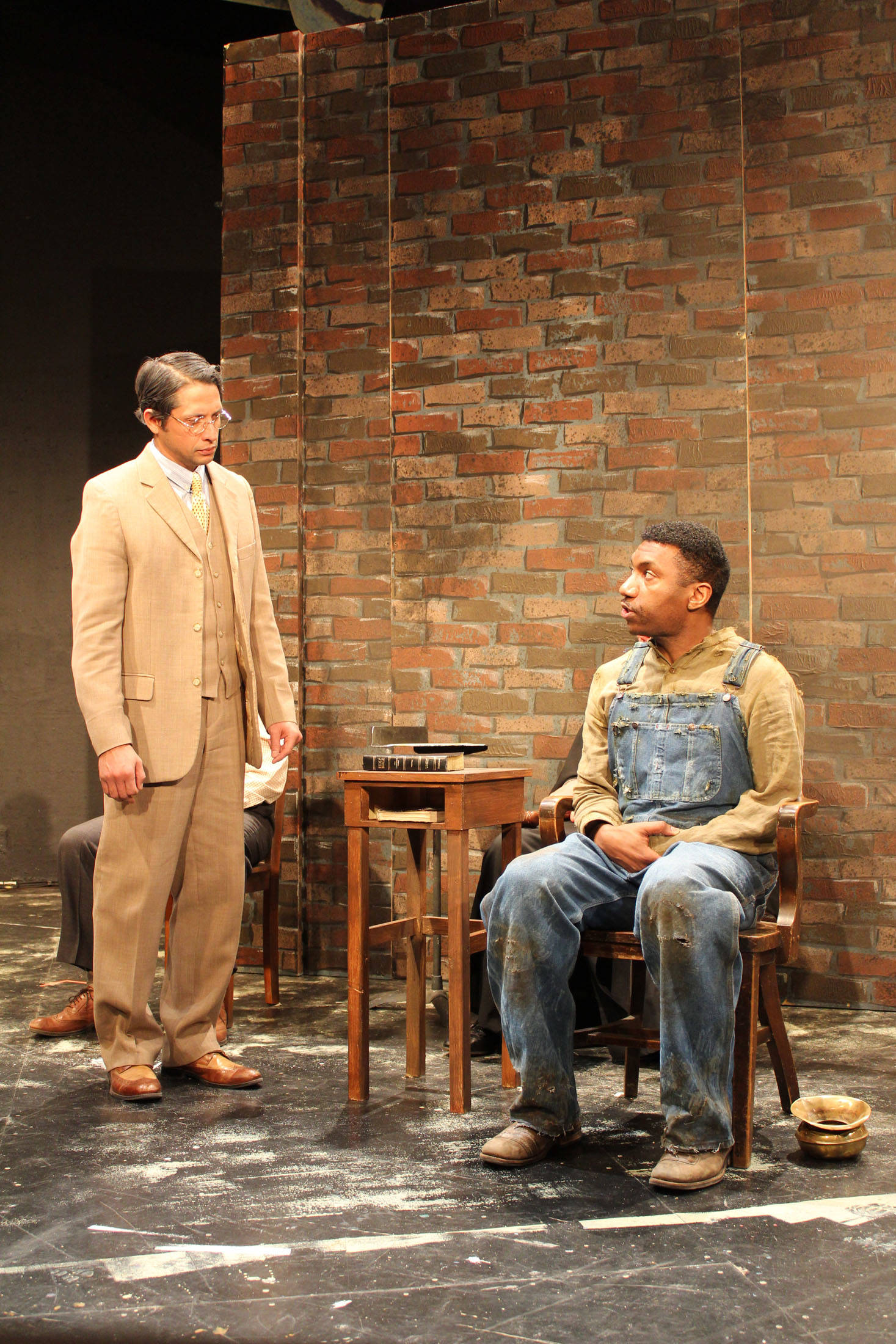When Perseverance Theatre selected “To Kill a Mockingbird” to close its 2016-17 season, it couldn’t have chosen a higher degree of difficulty.
“To Kill a Mockingbird” isn’t merely a classic American novel; it may be THE classic American novel. Since its first printing in 1960, Harper Lee’s moving, magical portrait of racial injustice and corrupted innocence has sold 40 million copies in 40 different translations. Some scholars rate it as the most widely read book in the English language, after the Bible.
And then there’s the 1962 film adaptation, long considered a paragon of American cinema—it ranks number 25 on the American Film Institute’s 100 Years… 100 Movies list.
For the “coup de grace,” Gregory Peck’s portrayal of Atticus Finch not only won that year’s Academy Award for Best Actor; in 2003, AFI ranked him the single greatest movie hero of the 20th century (take that, Indiana Jones!).
These are pretty impressive benchmarks. Why produce a show that’s already had its definitive production, especially of a story everybody knows?
My guess: specifically for that challenge.
Whether or not that’s the case, Perseverance Theatre passes the test with flying colors (indeed, color remains a substantial advantage theater will always enjoy over the film version, especially for audience members like my wife, who typically balks at the mere suggestion of watching a black-and-white movie).
Simply put, Perseverance offers a terrific retelling of Harper Lee’s Southern Gothic Bildungsroman, combining canny staging, impressive sets and excellent acting to create an immersive, enchanting, heartfelt theatrical experience.
The stage adaptation uses a script by Christopher Sergel, which debuted in 1990 in Monroeville, Alabama, Harper Lee’s hometown and primary literary inspiration. Interesting side note: performances of the play have since become a town ritual, similar to Mardi Gras, running every May on the county courthouse grounds, with townspeople as the cast.
Sergel’s play presents essentially the same story of noble attorney Atticus Finch, his curious children, and their quest for justice, goodness and equality in 1930s Alabama.
Obviously, Perseverance Theatre doesn’t have a whole Southern town, with period-appropriate courthouse, at its disposal. However, while Perseverance productions have skewed minimalist this season, Perseverance pulls out all the stops for “Mockingbird.”
This is a lush production. Art Rotch’s scenic design—he also directs—doesn’t merely “evoke” Depression-era small-town Alabama. The stage features houses with porches and flower boxes; these immense set pieces move to become a jailhouse, then a courtroom, then the Finch neighborhood again. Props to the construction, installation and set change team.
But that’s not all. Perseverance’s “Mockingbird” features live string band music, colorful lighting by Lucrecia Briceno, sumptuous costume design by Christopher Metzger, a dramaturge, a dialect coach and a fight choreographer. See what I mean about all the stops? Fight choreographer. That’s all the stops. More than that, you’re into musicals.
The play’s greatest strength, perhaps, lies in its cast—also large, an ensemble of 15, with some double-casting. Longtime company member Katie Jensen shines, yet again, as Maudie Atkinson, the Finch’s neighbor and the play’s de facto narrator (this is the furthest departure from the book, which is narrated by the adult Scout). Keith McCoy, last seen on the Perseverance stage as Judge Turpin in “Sweeney Todd” plays the accused man, Tom Robinson, with quiet strength and purpose. Perseverance actor-in-residence James Sullivan sheds his usual slapstick—for example, a recent role in “Peter and the Starcatcher” saw him in drag as a Victorian-era nanny—in favor of frighteningly belligerent bigot Bob Ewell. And Taylor Campbell delivers a nicely nuanced performance as Mayella Ewell, the supposed victim.
But while the whole ensemble brings its A-game, the best performances belong to the Finch family (and honorary member Dill Harris) as it struggles to navigate the rigidly defined world of Depression-era Deep South. Seth Coppens is exuberantly present as nine-year-old tomboy Jean Louise, aka “Scout;” Forrest Davis seems naturally feisty as Jem, her older brother, and Theo Houck brings an easy dreaminess to Dill (a character modeled after Truman Capote, Harper’s childhood friend). These three young actors really triumph in capturing the novel’s moving simplicity and emotional depth.
And then there’s Enrique Bravo as Atticus Finch, moral hero, model of integrity. Also a Perseverance actor-in-residence, Bravo delivers a skillfully moderated, grounded, quietly powerful performance as Atticus Finch, a character he doesn’t play as much inhabit. As Atticus himself says, “you never really understand a person until you climb into his skin and walk around in it.”
It’s not often you encounter a story that can be told equally well in any medium. From the page to the screen to the stage, “To Kill a Mockingbird” happens to be one. Perseverance certainly does it justice.

